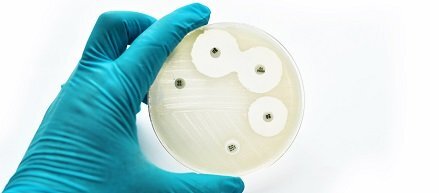Novel probiotic Lactobacillus strains for human therapeutic use and personal hygiene
The University of Antwerp isolated Lactobacillus strains and identified a novel L. casei strain carrying a number of advantageous traits indicating potential for probiotic use in human infectious and immunological disease prevention and therapy, and personal hygiene.

Situation before
Although antibiotics have huge merits, both acute and chronic infections are too often treated with antibiotics, causing high costs and several side effects, like antibiotic resistance. One of the most common side effects is antibiotic-associated diarrhea, which occurs in around 15-39% of people taking antibiotics. This leads to longer hospital stays and contributes to a significant healthcare cost. Especially for airway infections, antibiotic prescriptions reach high numbers. Patients suffering from otitis media, are prescribed antibiotics in 70-80% of cases. As to pharyngitis, this number reaches over 50 %, while only in 20% of cases treatment is efficient. Additionally, for patients suffering from sinusitis, 65% receive antibiotics while it is only recommended in 20% of the cases. Although awareness about the side-effects of antibiotics is increasing, there is a need to reduce the prescription behavior.
Technology
Researchers of the Lab of Applied Microbiology and Biotechnology of the ENdEMIC research group isolated several 100s of interesting novel Lactobacillus strains. Very interesting among these isolates is a novel Lactobacillus casei strain AMBR2 from the upper respiratory tract of a healthy individual. This strain has a variety of interesting beneficial properties based on genetic, biochemical and functional assays. An in-house developed comparative genomics analysis for Lactobacillus species showed that this strain has unique properties compared to other L. (para)casei strains, including an increased oxidative stress resistance due to the presence of catalase genes. In addition, this strain has excellent adhesion properties to airway, epithelial and immune cells, due to the presence of unique fimbriae surface appendages (see image). The strain shows excellent antimicrobial activities against respiratory pathogens such as Moraxella catarrhalis, Haemophilus influenzae, Staphylococcus aureus, Shigella flexneri, S. sonnei, Escherichia coli and Candida albicans.(Picture: Adhesive fimbriae of L. casei AMBR2)
About the researchers
The Laboratory of Applied Microbiology and Biotechnology within the ENdEMIC research group was established in 2012 with the start of the research professorship of prof. Sarah Lebeer. The research mission of the lab is the study of beneficial bacteria (probiotics) at both a molecular level (mode of action) and applied level (biomedical and environmental applications). During her own PhD (2004-2008), Sarah Lebeer investigated probiotics for the gastro-intestinal tract, shifting to beneficial microbes from the urogenital tract during her postdoc period. With the start of her professorship at UAntwerpen, S. Lebeer decided to focus on a new niche, i.e. the respiratory tract. All probiotic-host interactions are studied at cellular and molecular levels (including microbiome analyses through 16S amplicon sequencing), for which all infrastructure is available in house.
More information
University of Antwerp
Valorisation Office
Middelheimlaan 1
2020 Antwerpen - Belgium
T +32 3 265 30 25